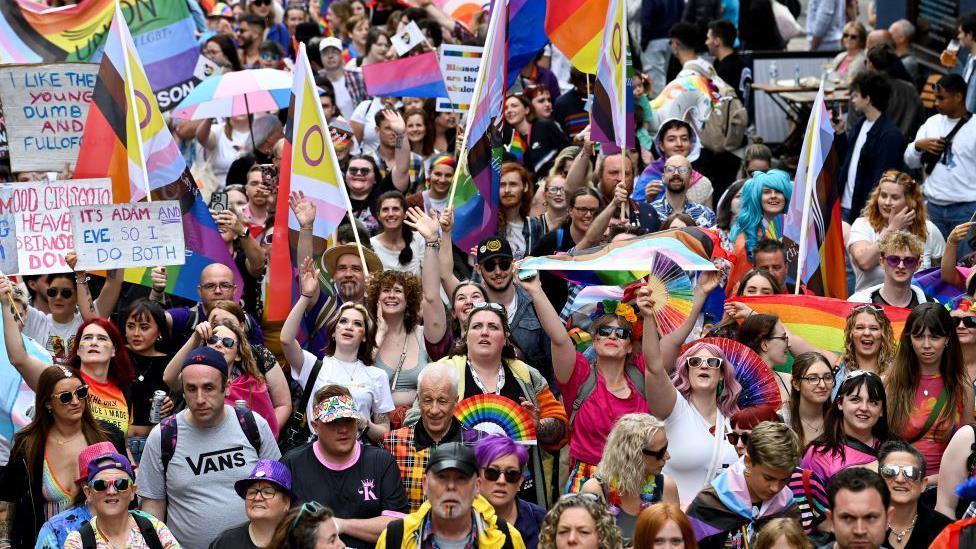Patrick Harvie to stand down as Scottish Green co-leader
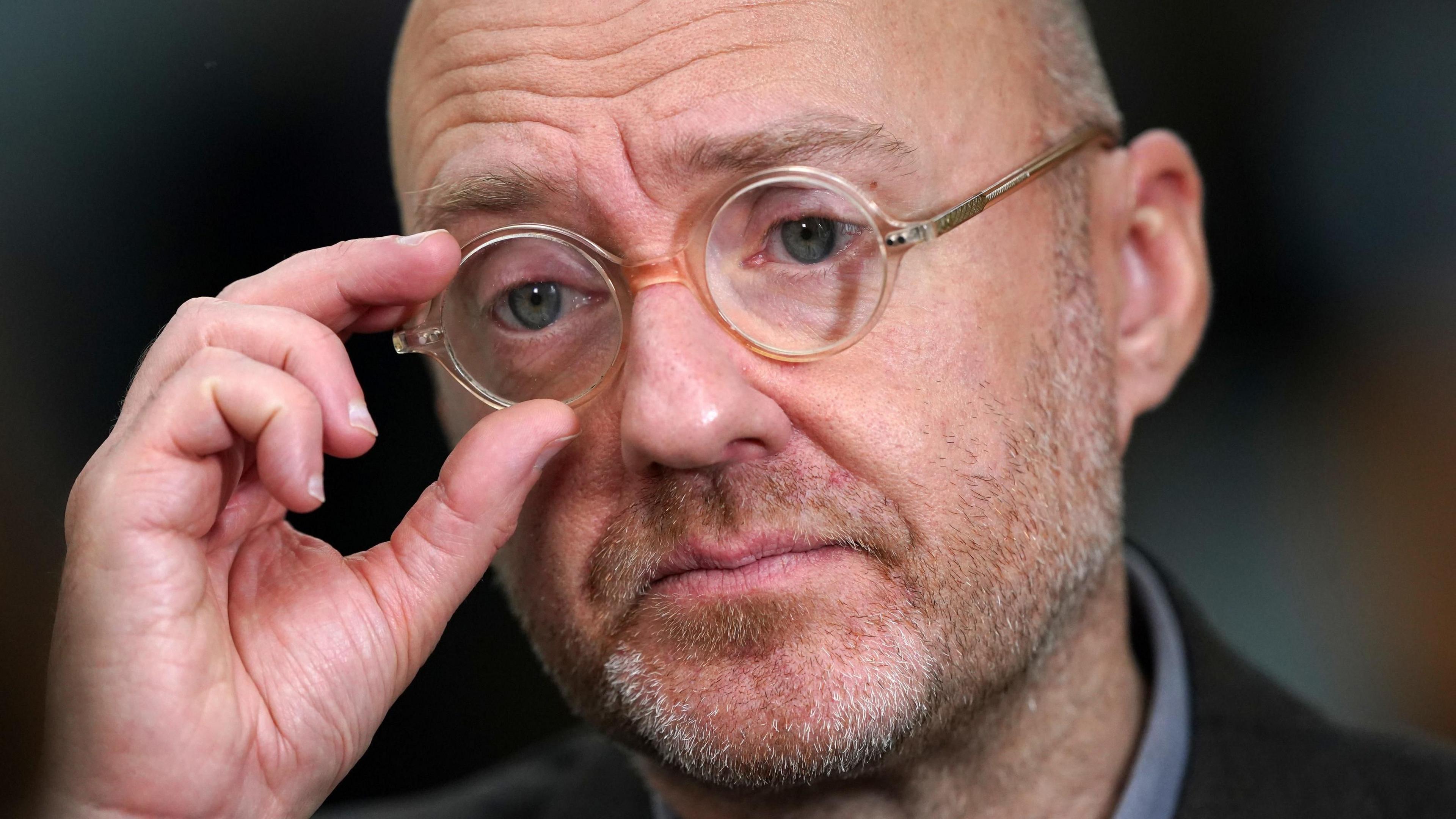
Patrick Harvie is the longest-serving party leader in the Scottish Parliament
- Published
Patrick Harvie is to stand down as co-leader of the Scottish Greens, he has announced.
The Glasgow MSP and former Scottish government minister will remain in place until the party holds a leadership contest in the summer.
He intends to seek re-election as an MSP at next year's Scottish Parliament election.
Harvie is the longest-serving party chief at Holyrood, having been in the role for almost 17 years.
Along with his co-leader Lorna Slater, Harvie was the first Green minister in the UK after his party signed a power-sharing deal with the SNP in 2021.
'Extraordinary privilege'
The Glasgow MSP said it had been an "extraordinary privilege" to lead the Greens.
He told BBC Scotland News: "With a new election coming up and with myself having been in the equivalent of the co-leader role for honestly a ridiculously long time now, I think the right time is now for a new face to join the leadership team."
In a statement, Harvie said that when he was first elected to Holyrood in 2003 "few people regarded the Greens as a serious political force".
He added that the party had since become "the most significant, sustained new movement in Scottish politics for generations".
Although Harvie spent some time away from Holyrood earlier this year due to a medical procedure, it is understood his decision is not due to any health issues.
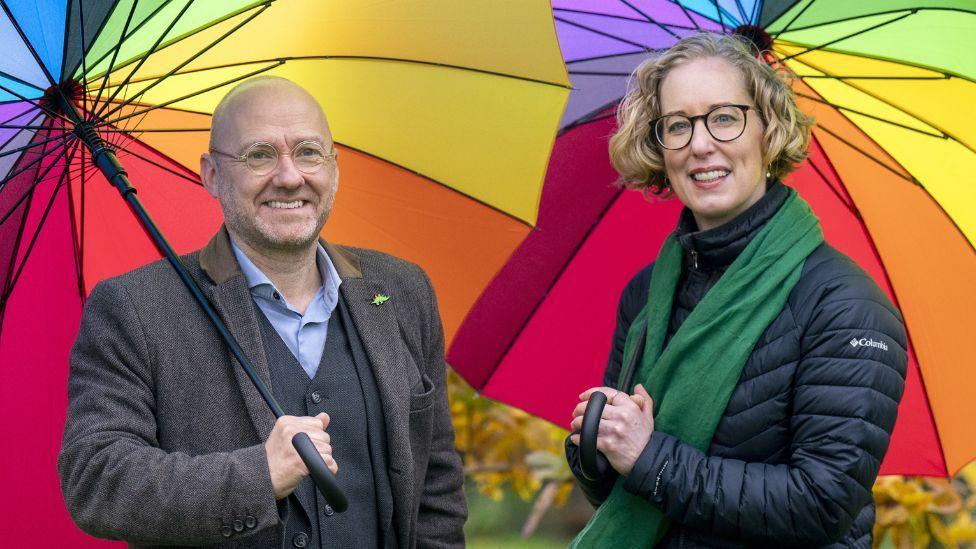
Patrick Harvie and Lorna Slater have been co-leaders since 2019
Green leaders serve two-year terms, with an election due in the summer. Under party rules, one of the co-chiefs has to be a woman.
Harvie said he would have considered stepping down earlier had it not been for the "incredible opportunity" of leading his party into government.
He told BBC Scotland News that Green politics had to be about more than "symbolic" gestures or policies. "It has to be about making change happen in the real world," he said.
"Greens have done that from opposition and we've done that from within government and I'm convinced that with hard work and determination and creativity that's what Greens will continue to do."
Harvie and Slater played key roles in high-profile policies on gender recognition reforms, climate change, rent controls and a bottle return deposit scheme.
The power-sharing deal, known as the Bute House Agreement, collapsed in 2023, leading to Humza Yousaf's resignation as first minister.
Since leaving government, Harvie has criticised the government for rowing back on climate change targets and ending rent controls.
The Glasgow MSP was first selected as Scottish Green co-leader - then called co-convenor - in September 2008.
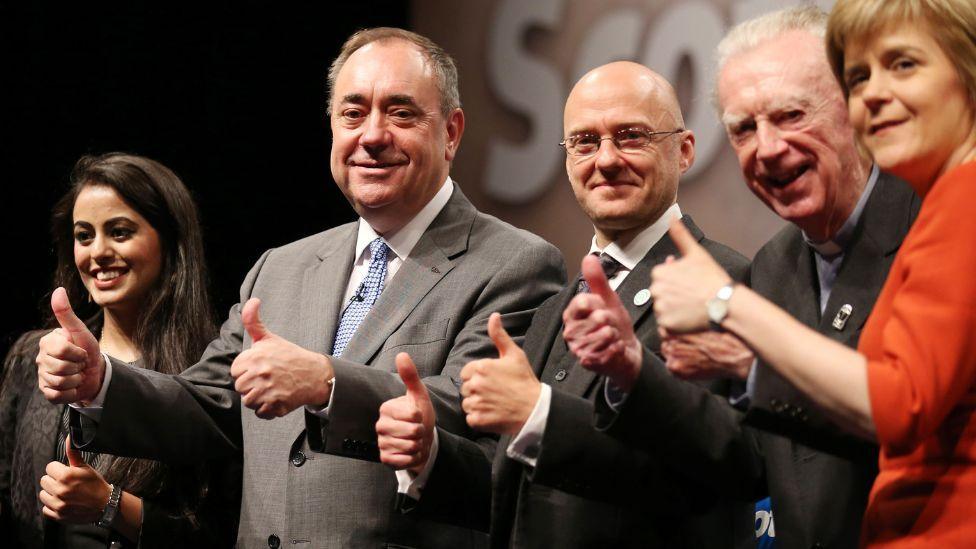
Patrick Harvie campaigned for Scottish independence alongside first minister Alex Salmond and his then deputy Nicola Sturgeon during the 2014 referendum
The Scottish Greens made their first major electoral breakthrough at Holyrood in 2003, with Harvie becoming Holyrood's first openly bisexual MSP.
He was named as co-leader - then called co-convener - in September 2008, when the party had just two MSPs.
Harvie backed the Yes campaign in the 2014 referendum, describing it as a period of "explosive growth" for his party.
After being named co-leader alongside Slater in 2019, Harvie helped steer the party to a record return of eight MSPs in 2021, securing a pro-independence majority in the Scottish Parliament.
'Formidable' leader
Harvie grew up in the Vale of Leven and attended Campaign for Nuclear Disarmament protests from a young age.
After leaving university, he worked within the Gay Men's Project at a sexual health organisation.
First Minister John Swinney said he was "sorry to see" Harvie was stepping down.
The SNP leader added: "He has been a formidable advocate for his ideals and I wish him well."
Former first minister Nicola Sturgeon, who invited the Greens into government, said Harvie should be "proud" of helping to make the party a significant force in Scottish politics.
Harvie's announcement comes ahead of the party's spring conference in Stirling next week.

This announcement was widely anticipated. But it marks a big change for the Scottish Greens.
After all, Patrick Harvie has been a constant presence in the leadership team since 2008. It was clear speaking to him this morning that he's been considering this decision for a long time.
And with the party's biennial leadership elections due to take place this summer, it's the right time to confirm his intentions.
Attention is now turning to who may succeed him. Ultimately that'll be up to the some 7,500 Scottish Green members to decide - if there are more than two candidates for the co-leadership roles.
I understand Harvie's current co-leader Lorna Slater intends to put herself forward for re-election.
Other names entering the frame include the party's education spokesman and West Scotland MSP Ross Greer, and Central Scotland MSP Gillian Mackay, best known for introducing legislation to bring in buffer zones outside abortion clinics.
Related topics
- Published12 March

- Published25 April 2024
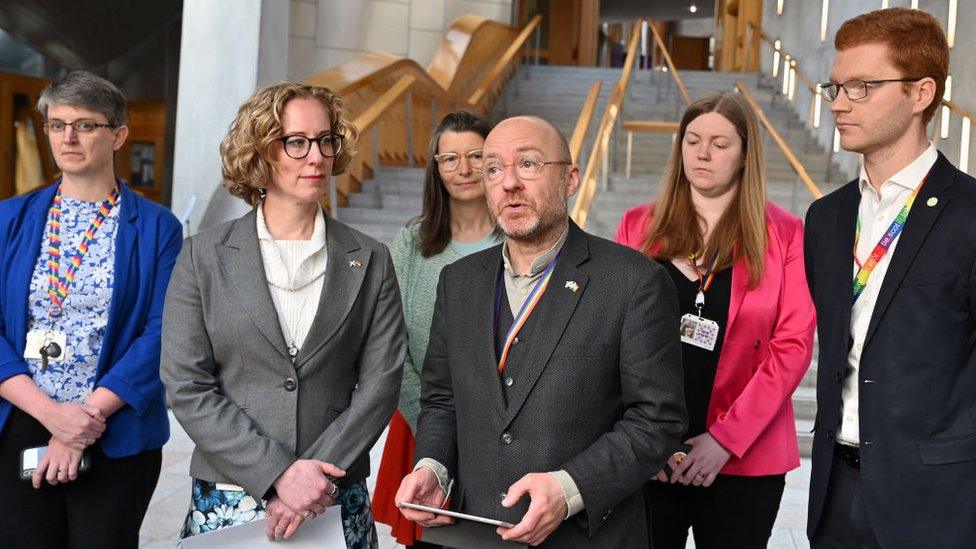
- Published22 June 2024
